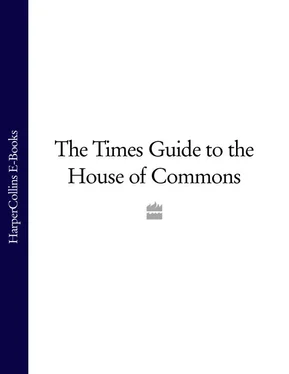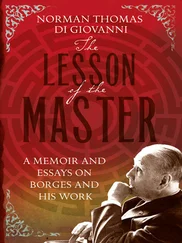Mr Brown was, famously, the “son of the manse” – a man built upon the bedrock of religious and social principles as bequeathed to him by his minister father. “Understand this about him,” I was told more than once by Scots, “and you understand everything.” And when he repeatedly used the word “values”, like a mallet on a wooden tent-peg and pronounced with an almost unending first vowel, it sounded convincing and deeply meant.
In his international campaigns to reduce Third World debt and to increase aid to Africa, both hugely successful, it was easy to see high moral principle at work, although such goods are indeed oft interred with the politician’s bones. These were real and important achievements, but ones unlikely to be appreciated by most journalists, let alone most voters.
It could also be that in 30 years the first historians of the 2000s will single out Gordon Brown’s leadership during the banking crisis of 2008-09 as having been central to saving the world from a second full-scale Great Depression. For a year a formerly depressed Prime Minister was transformed into a man full of hectic energy and knowledgeable determination.
But then there was the thin-skinned, jealous, tricksy and occasionally even treacherous Brown, who seemed to stand at 90 degrees to the morals of the manse. This was the Chancellor who would cook the figures to make them more palatable and to suggest that he was being more generous than in fact he was; the colleague who allowed his closest advisers to run around Westminster bad-mouthing anyone who was considered to be an opponent; the Cabinet member who tried to keep his budgets secret from his own Prime Minister; the co-founder of new Labour who, for half a decade, connived secretly at the replacement of his one-time friend.
When, in the late Nineties, the first reports began to be written about rival camps forming around Tony Blair and Gordon Brown, some of us dismissed them as overblown – the product of junior aides shooting their mouths off and hacks anxious for a story. It seemed intrinsically unlikely that men who had been so disciplined and thoughtful in their pursuit of government should be so adolescent in their relationships with each other. I could not have been more wrong and gradually it became clear that this was not a matter of six of one and half a dozen of the other, but of a jealousy and resentment felt by Mr Brown towards Mr Blair.
So Gordon Brown became the man who opposed Tony Blair’s attempts at public service reform when the latter was in office, and then embraced the same reforms once he had been pushed out.
And then, when in the post he had wanted so long, elected from a field of one, the politician who had moved decisively in 1997 on the question of the Bank of England, havered disastrously when, for a moment almost exactly ten years later, he might have won a general election in his own right.
In the televised debates in the 2010 campaign the former romantic lead came over as a rather querulous and awkward pensioner, barely restraining his innate grumpiness. Perhaps most ruinous to his long-term reputation, though, was the perception, widely shared and cleverly exploited by political opponents, that the economic crisis was somehow his fault, almost alone. The accusation was that Britain was particularly disadvantaged in responding to the crisis because of his earlier profligacy, saddling the nation with a mountain of public debt. When the Cameron-Clegg coalition began its governance of the country its main theme was blaming Mr Brown and his high-spending ways for any unpopular decision that it was about to make.
It might also be that Mr Brown is the last British leader in the modern era to be nothing like a television or film celebrity. His predecessor and his successor both possessed an easy public charm and a capacity to share their private existences in some way with the public and the media. Mr Brown palpably loathed this aspect of 21st-century politics, taking care to minimise the significant disability represented by his damaged eyesight, to play down the trauma of the loss of his first child in 2002, and to guard the privacy of his two young sons who, for one moment only, shared his last public appearance outside 10 Downing Street.
Gordon Brown was a substantial politician, a man of substantial achievement and significant faults, probably in the end too cautious, too thin-skinned and too cussedly human to be a great leader.
New Labour found its reforming stride too late
Phil Collins
Leader writer
The obituaries of the new Labour period in office are already being written, even though its time has only just passed. Politics always requires that you tell a clear story about what you are doing. In truth, in the maelstrom of internal conflict and external pressure, policy formation is often driven by scandal and panic as much as it is by principle and forethought. Much of the policy work the Labour Party did in opposition turned out to be inoperable. Policies enacted spawned unintended consequences. Then events occur that come to define the period in office that were never part of the original prospectus.
All that said, it still makes sense to divide the Labour period in office into three parts, broadly corresponding to changes in approach. The first period lasted from the golden glow of May 1997 until the winter crisis in the National Health Service in 2000. The failure of extra money alone to improve the service prompted the second, most fruitful, period of government between 2001 and the departure of Tony Blair from office in the summer of 2007. The premiership of Gordon Brown then marks a third phase in the Government, in which the pace of the second was slowed.
When the Blair Government was elected in May 1997 it came to office with a long history of policy development behind it. In office, though, it exhausted that preparatory work quite quickly. The granting of independence to the Bank of England was the most conspicuous policy, but really stood alone. There were three themes during this period in government. The governing idea of the administration was supplied by Mr Brown: the idea of work. The New Deal for the long-term unemployed, funded by a levy on the privatised utilities, and the introduction of tax credits to supplement the wages of those in work, heralded, it was said, a return to the idea that work was the best form of welfare.
The second notable theme of the first period was constitutional reform, although the half-hearted and incomplete programme indicated ambiguity on the part of senior personnel, not least the Prime Minister himself. Still, the devolved assemblies for Scotland and Wales are now a part of the political landscape accepted by all parties and the argument about the House of Lords is how to finish off Labour’s near-abolition of the hereditary principle, rather than how to reverse it.
In the public services, the Government’s strategy, which was essentially command and control from the central State, was well-equipped to deal with deep failure. There had been, for example, no progress on literacy for almost half a century. Placing a team in the department to force through curriculum change was an old-fashioned, and for a time very effective, use of state power. Hundreds of Public Service Agreements were set. The regimes of inspection and audit were toughened and the publication of information about services became commonplace.
The time ran out on this approach when the Chancellor of the Exchequer released the grip he had hitherto held on spending. The Government had come to office determined to shed Labour’s historical association with profligacy. Mr Brown had, for that reason, submitted to the spending plans he had inherited from his Conservative predecessor. The paradox of releasing that restraint, though, was that it called forth the need for reform.
Читать дальше












